Why do we stay in an abusive relationship, despite knowing that what’s happening to us is not right? There can be many reasons for staying in an abusive relationship, but one, in particular, is the most important.
Your partner verbally and physically abuses you, but you can’t find the courage to leave him. Instead, you choose to stay in an abusive relationship.
He manipulates, controls, degrades, and berates you. You suppress your hurt feelings. You even make excuses for his reprehensible, hurtful behavior.
He promises repeatedly to quit drinking, to get counseling for his anger issues, and to stop verbally and physically battering you. Instead, he blindsides you with a cutting remark or rages at you for no clear reason.
You know in your heart that your relationship is a lost cause, and yet you stay with a man who is slowly destroying you.
Related: 5 Reasons You Still Miss Your Abusive Ex
Girl, where is your sense of survival?
What relationship could possibly be worth the horrific conflict, mental mutilation, bruises, and busted lips at the hands of a punishing, irate boyfriend or husband?
Why does a woman stay with a man who mistreats her so badly?
We hear from many people who are in or were into abusive relationships, they say that they love their abusive partner and they wonder, “Why do I love someone who has hurt me so much?” It’s definitely a strange, confusing feeling.
If you’re struggling with feelings of love for an abusive partner, it could be for a number of reasons. Let’s dive into this article to understand what might be contributing to these feelings.
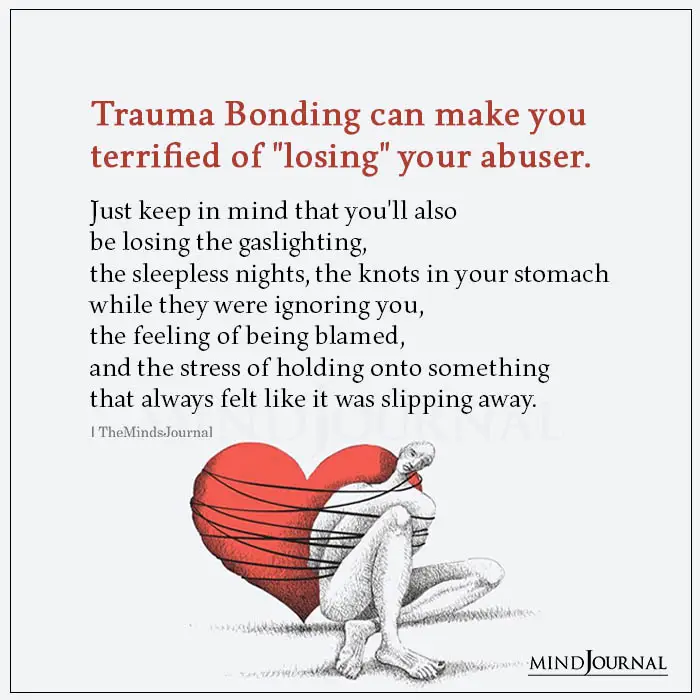
There are compelling reasons why women stay in an abusive relationship with an abusive partner:
- The abuse may occur over a short period of time, and she is able to shrug it off.
- He may tell her, “I’m sorry, it will never happen again,” and she believes him.
- She may have been abused as a child or witnessed her mother abused by her father, and she accepts it as normal behavior, consciously, or unconsciously.
- She may be financially dependent on him, or she may have a fear of living alone.
- She may fear her partner and may believe she has no power to change the situation.
- She may fear his suicide; he says he’ll kill himself if she leaves.
- She may have religious and cultural beliefs or a misguided sense of loyalty that keeps her tied to her relationship—or she stays for “the sake of the children.”
- She is in denial about the abuse. He is often loving and lovable which helps her excuse and minimize his episodes of cruelty or violence.
- The sex with him is intense and she is addicted to an erotic emotional attachment to him.
These reasons are to some extent understandable—but there must be a greater force that ties a woman’s soul to a man who unmercifully batters her.
Related: Emotionally Abusive People And Their 20 Identifying Traits
Bonding with the enemy.
Seduction, deception, and betrayal are core components of an abusive relationship.
You fell in love with the most wonderful man you’ve ever known. He adored you. He understood you. He showered you with attention, affection, and gifts. He got into your head, your heart, and your bed.
You were overwhelmed by the love you felt for him. You allowed him into your life because you trusted him. And then he began to criticize, control, and demean you and the cycle of abuse begins.
Your partner’s demeanor changes, suddenly or gradually. Once he was loving, considerate, and patient, now he ridicules you, unjustly blames and condemns you, and erupts in unprovoked, uncontrollable anger. His behavior is punishing, demoralizing, and menacing. It’s as if he enjoys the anguish and tears he causes you.
After each abusive event, he apologizes profusely for his cruel behavior and the “battering phase” ends. He appears contrite. He is quasi-agreeable, considerate, and attentive. He may agree to quit drinking or go to counseling.
In spite of his volatile, harmful behavior, you are grateful for his change of heart and you are optimistic that his remorse is genuine—so you forgive him, you have makeup sex and you enter the “calm-loving-respite phase.”
Having forgiven him, you are doubly emotionally invested in the relationship.
Inevitably, he begins to batter you again and you are drawn deeper into the traumatic bonding experience.
Your emotional suffering is profound. You are conflicted by the intense love-hate-regret-sorrow-fearful feelings you have for your boyfriend or husband. One minute you despise him and you want him out of your life permanently and the next morning you can’t live without him.
Unaware of the dynamics of the abuse-trauma-bonding process, you describe your acute emotions as best you can—you call it love and you lament to reunite with him.
Related: It Isn’t Love – It Is Narcissistic Abuse
Your life becomes a constant act of emotional survival. The cycle of abuse is a roller coaster of tension building, battering, and honeymoon.
The more times you are abused—the more times you experience your abuser’s rejection, cruelty, and treachery. If you try to leave him, he controls you with his threats and insincere and short-lived promises to change and he convinces you to stay in the relationship until his next episode of battering and violence.
Every time you reconcile with your abuser…
- You adapt and learn to cope with his disapproval, rejection, deception, cruelty, betrayal, and anger that progressively destroys your self-worth.
- You are telling him you condone his abusive behavior, giving him the green light to increase the frequency and intensity of his abuse.
- You incur more and more self-doubt, confusion, disbelief, depression, guilt, shame, isolation, anxiety, fear, and hopelessness.
- You become addicted to experiencing the “honeymoon phase,” craving his love, acceptance, and approval.
- Your sense of helplessness and dependency on your abuser increases.
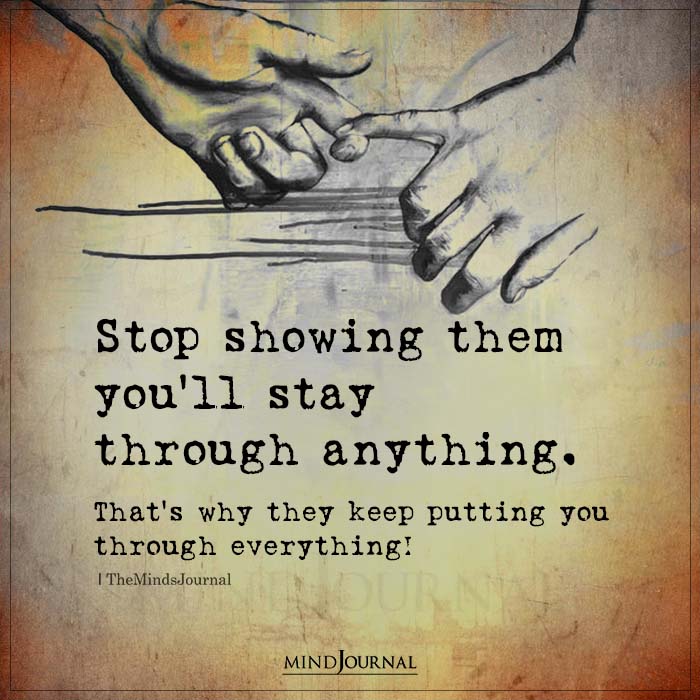
Don’t ignore your oppressed reality.
If you don’t understand the destructive dynamics of an abusive relationship, you might not understand what is happening to you.
Your abusive partner’s centralized goal is to define your entire life’s experience. His abuse gradually strips you of your confidence, ambition, joy, independence, and self-worth, rendering you totally dependent on him for your security, happiness, and welfare.
Recognizing abuse for what it is, an attempt to gain power and control over another is the first step to regaining your personal power.
Learn everything you can about abusive relationships and innately angry men; read books and online articles.
Related: Teach Your Kids These Warning Signs Of Emotionally Abusive Relationships
Don’t suffer in silence; get counseling and confide in your friends and family. Decide not to stay in an abusive relationship. Develop an exit strategy, leave him permanently, begin your personal healing, and start to rebuild your life.
Guys, flip the dialogue, women can be equally nasty critters.
If you find this post helpful, leave a comment below. Also, share it with your friends.
Want to know more about why does someone stay in an abusive relationship? Check this video out below!
Written By Nancy Nichols
Originally Published on Know It All Nancy
Printed with permission
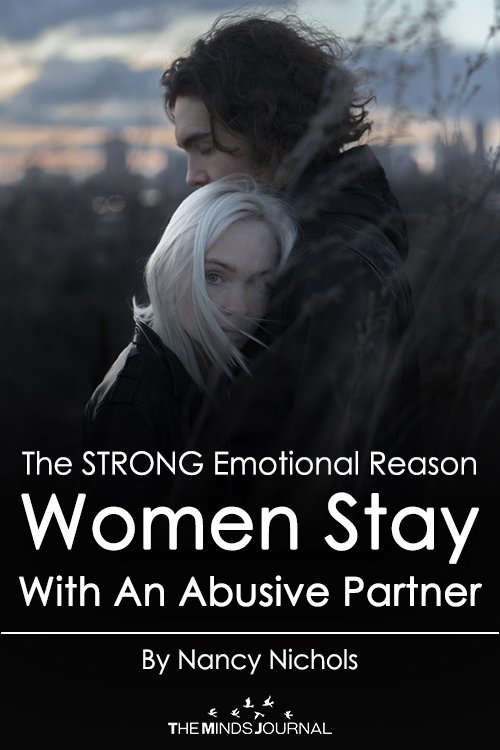
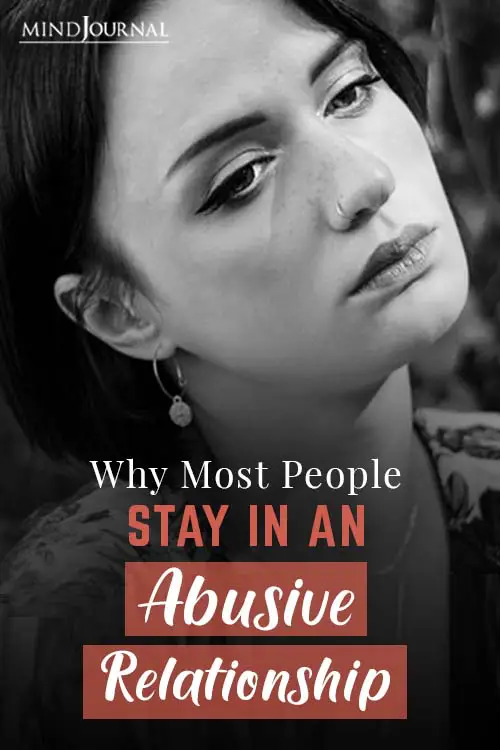
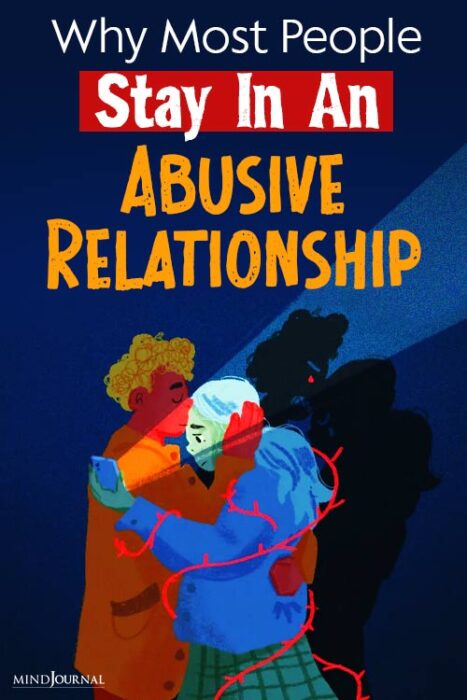
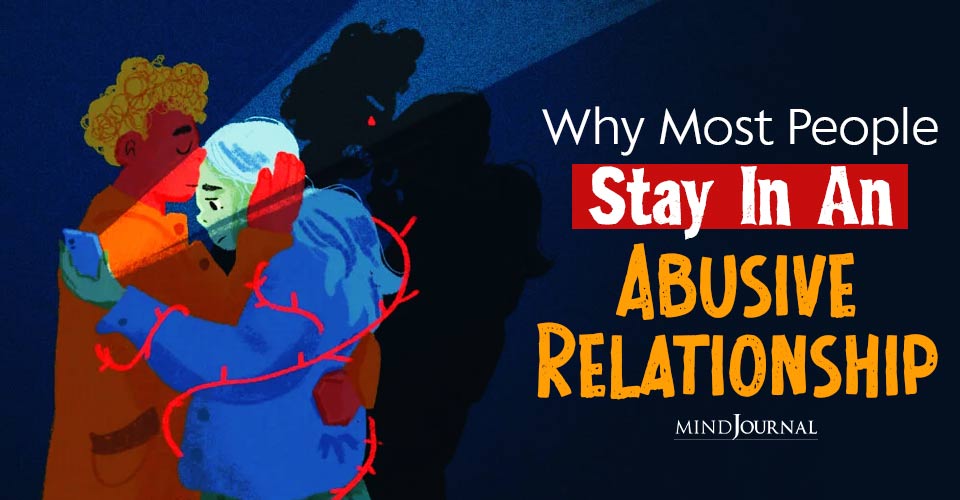







Leave a Reply
You must be logged in to post a comment.